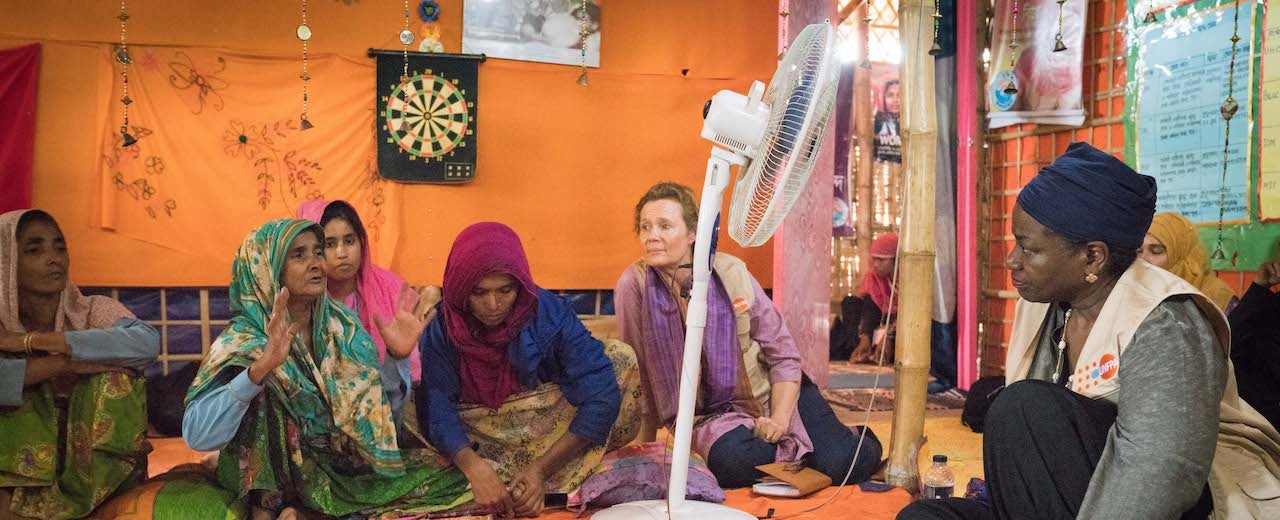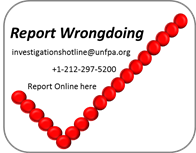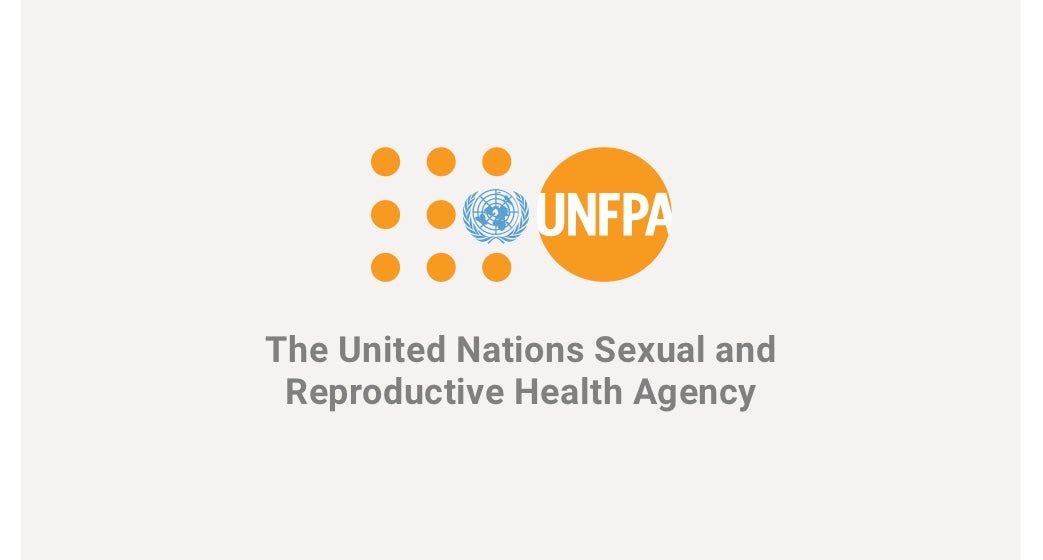Protection from Sexual Exploitation, Sexual Abuse and Sexual Harassment
Let's all be champions of protection and place the rights and dignity of victims and survivors at the heart of our efforts.”
— Dr. Natalia Kanem, UNFPA Executive Director.
UNFPA’s vision is to cultivate an organizational culture of care that nurtures a safe, trusted, respectful and inclusive environment, where the rights and dignity of UNFPA personnel and the people and communities we serve are recognized, promoted and protected, and all feel empowered to speak up for themselves and others and take appropriate action to prevent and respond to any and all SEA.
UNFPA has zero tolerance for all forms of sexual wrongdoing, whether perpetrated against a recipient of assistance or a coworker. Sexual exploitation and abuse and sexual harassment violate human rights and are a betrayal of the core values of the United Nations. The interests and dignity of those affected guide UNFPA’s approach to prevention, response and assistance.
UNFPA’s PSEAH Strategy
UNFPA has a multipronged, victim-centered strategy to effectively prevent and respond to sexual misconduct. The strategy focuses on a number of concrete measures under three key objectives: prevention, response and assistance embedded in a robust institutional framework.
Policy Framework
UNFPA PSEAH efforts are guided by a coherent regulatory framework of policy documents and complementary resources. UNFPA adheres to the Secretary-General Bulletin on sexual exploitation and abuse, applicable to all UN staff (ST/SGB/2003/13). Additionally, UNFPA has a dedicated policy on the Prohibition of harassment, sexual harassment, abuse of authority and discrimination. The UNFPA Oversight Policy embodies the principle of zero tolerance for wrongdoing, including sexual exploitation and abuse and sexual harassment. In addition, the Policy on Protection against Retaliation sets forth a framework and a procedure for the protection of UNFPA personnel from retaliation.
Organizational Structure
UNFPA rolled out a harmonized PSEA organizational structure to ensure an effective and efficient response across the Organization. In April 2018, the Deputy Executive Director for Management (DED-M) was appointed as the Senior Focal Point for Protection from Sexual Exploitation and Abuse and Sexual Harassment (PSEAH) and is responsible for the development and implementation of an integrated PSEAH Strategy. The Senior Focal Point is supported by the Coordinator for PSEAH and the PSEAH Specialist. UNFPA has a global network of PSEA focal points at the regional and country level to support implementation on the ground.
Prevention
UNFPA conducts rigorous pre-employment checks of staff and personnel. UNFPA uses the UN system-wide database ‘Clear-check’ to prevent re/hiring of individuals with a record of SEA or SH.
All UNFPA personnel are required to undergo mandatory training on PSEA and those with additional responsibilities, such as managers and PSEA focal points receive dedicated training.
UNFPA does not partner with entities that fail to appropriately address sexual exploitation and abuse and sexual harassment. To this end, prohibition of SEA and SH forms part of UNFPA’s cooperative arrangements with individual contractors, service contract holders and implementing partners. As UNFPA operates mainly through implementing partners, recent efforts have focused on ensuring that implementing partners have adequate capacities to prevent, respond and provide assistance. To this end, UNFPA has fully operationalized the United Nations Protocol on Allegations of Sexual Exploitation and Abuse Involving Implementing Partners and launched, jointly with other UN partners, a harmonized assessment tool to assess, build and monitor partners’ PSEA capacity.
Response
Any form of sexual exploitation and abuse and sexual harassment is prohibited, constitutes wrongdoing and will be addressed as a matter of priority by UNFPA. UN personnel are not covered by immunity for acts that constitute crimes, and the Organization does not protect personnel who commit such crimes.
UNFPA personnel are obligated to report allegations of sexual exploitation and abuse to the Office of Audit and Investigation Services through the confidential reporting tools available here, including an online reporting form available in five of the official UN languages.
UNFPA annually publishes, in anonymized form, details of all investigations of wrongdoing, including those of sexual exploitation and abuse and of sexual harassment, as well as sanctions taken in response. Additionally, UNFPA reports, on a real-time basis, all allegations of sexual exploitation and abuse to the Secretary-General. Since May 2019, allegations are available in the electronic tool iReport SEA Tracker.
Improving access to reporting and complaints mechanisms remains of critical importance. To this end, UNFPA rolled out the UN system-wide Incident Reporting Form and provided training on the use of this tool in all mandatory operations, to ensure a harmonized approach to facilitating the intake of allegations.
Assistance and Protection
All UNFPA personnel are protected from retaliation for reporting allegations of sexual exploitation and abuse or sexual harassment in good faith. Retaliation is prohibited and, if established, constitutes sanctionable misconduct. Personnel who believe that they have been the victim of retaliation may seek informal redress or make a formal complaint to the Ethics Office at ethics.office@unfpa.org.
UNFPA has institutional experience in responding to gender-based violence, hence ensuring access to quality assistance to victims of sexual exploitation and abuse is our core priority. In collaboration with its partners, UNFPA offers crucial assistance and support to victims.
In 2020 UNFPA implemented the United Nations Protocol on the Provision of Assistance to Victims of Sexual Exploitation and Abuse which aims to elaborate a common set of norms and standards to strengthen a coordinated, system-wide approach to the provision of assistance and support, prioritizing the rights and dignity of victims. Victims of SEA are able to access assistance through gender-based violence services.
To ensure the wellbeing and psychosocial health of personnel and to foster a safe and caring environment for its workforce, UNFPA has taken several measures to improve availability and quality of services for personnel. All people working for UNFPA now have access to counselling services through the Employee Assistance Program (EAP), the Rome Institute, as well as regional staff care specialists. Additional support and resources have been made available to personnel who need assistance with intimate partner violence. Additionally, UNFPA is establishing a network of Respectful Workplace Facilitators to assist personnel through early intervention in appropriate cases. The programme is currently being piloted in 12 countries.
IASC PSEAH Championship
In January 2021, the Executive Director, Dr. Natalia Kanem assumed the Inter-Agency Standing Committee (IASC) Championship on PSEAH. The Championship provides a unique opportunity for UNFPA to advance a system-wide, victim-centered approach while leveraging its core expertise as the lead agency in the area of gender-based violence (GBV). Building on the work of previous Champions and considering its unique expertise, UNFPA will focus on key priority results to strengthen a victim-centered approach to the humanitarian sector’s response to sexual wrongdoing.
For additional information on the Championship please also visit UNFPA’s dedicated Championship page.

We seek a humanitarian environment in which people feel safe and respected, and can access the protection and assistance they need without fear of exploitation or abuse. I personally commit to carry this vision forward as I assume the role of IASC Champion.” - UNFPA Executive Director, Dr. Natalia Kanem.






